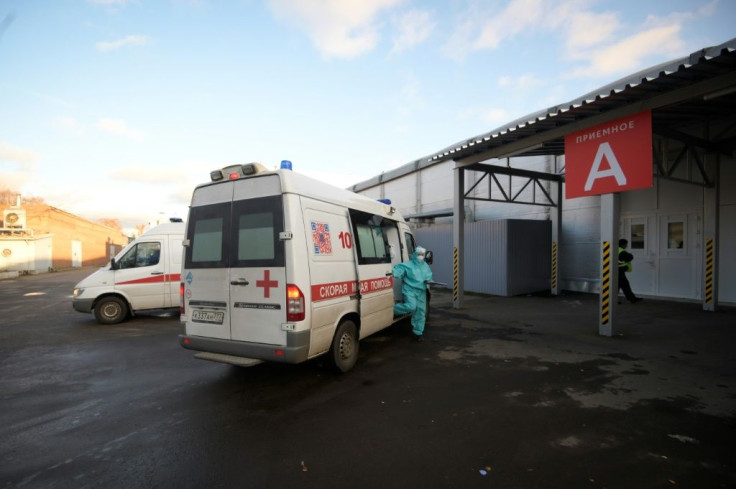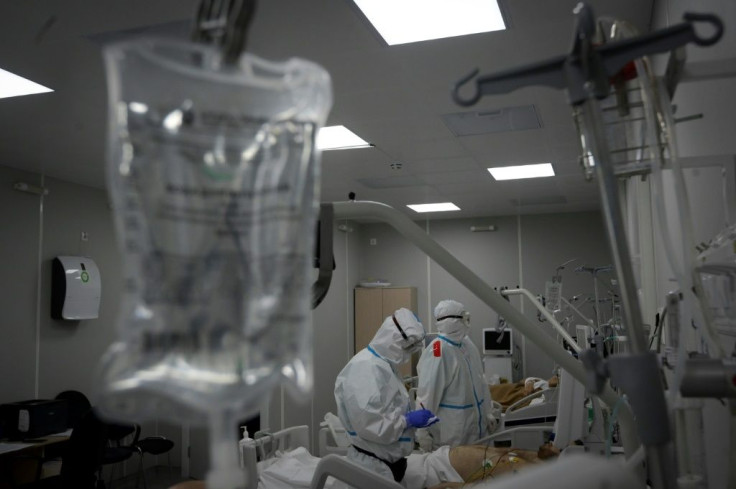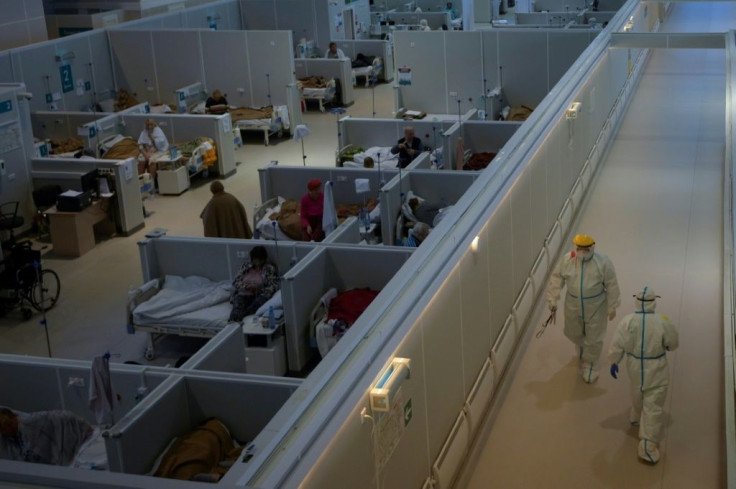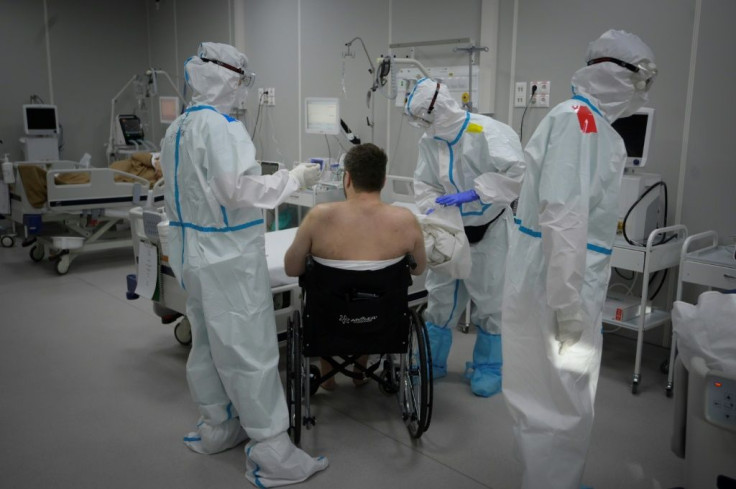Russians Sickened By Virus Surge Feel Lucky To Be In Well-off Moscow
Alexander Komarov, a patient in one of Moscow's temporary hospital wards, cannot hold back tears as he speaks about his fear of dying from the coronavirus.
But as Russia's underfunded and poorly staffed hospitals in the regions beyond Moscow are struggling to cope with a new surge in virus patients, Komarov acknowledges that he is lucky to be receiving treatment in the affluent capital.
"I'd rather be here than anywhere else, the staff are wonderful," said the 62-year-old Moscow metro employee, his face flushed from fever.

For a week Komarov has been receiving treatment in a makeshift ward consisting of 550 beds inside an exhibition centre at Sokolniki Park in northeastern Moscow.
With ambulances bringing around 80 patients there every day, the centre is nearing full capacity.
But its 350 medical workers are well-prepared and have access to protective equipment, X-ray machines for chest scans and mobile labs. Every patient wears a QR code on their wrist providing instant access to their medical history.
Authorities have set up five temporary coronavirus wards to take the pressure off the healthcare system in Moscow, a city of more than 12 million.

"We take the hit so that the city's hospitals are no longer overwhelmed," said Maxim Naumenko, a 40-year-old doctor dressed in full protective gear.
He said he was recruited to manage the Sokolniki centre because of his experience in dealing with trauma during bombing and other attacks in the city in the early 2000s.

The country has the fourth-highest virus caseload in the world with more than 1.83 million registered infections, and over 31,500 deaths.
Russia has reported a much lower virus fatality rate compared to other badly hit countries and Kremlin critics have accused the government of attempting to downplay the severity of the pandemic.
Demographic data for March-September shows an excess of more than 117,000 deaths year-on-year, suggesting that the actual number of fatalities could be much higher.
But as countries in western Europe and beyond are re-introducing restrictions including lockdowns to battle the second wave of the coronavirus, Moscow has so far refused to enforce a new quarantine.

The country imposed one of the most restrictive lockdowns during the peak of first wave of the pandemic from March to May, and authorities have recently introduced a number of new measures to ease the effects of the epidemic without further weakening the economy.
President Vladimir Putin has ruled out a new quarantine.
"Despite a difficult epidemiological situation, we are much better prepared," he said in late October.
The government is also pinning its hopes on two Russian vaccines that are in their final phases of testing.
While Moscow remains the epicentre of the outbreak, the regions now account for about three quarters of the country's overall caseload compared to just under half in the spring.
In several regions, particularly in Siberia, doctors and patients have reported extreme pressure on emergency services.
In late October, a video that was later confirmed by authorities showed bodies piling up in a morgue in the Altai region.
In a small hospital in the Far North, a nurse who asked that her last name be withheld, said she regularly had to take care of around 30 coronavirus patients on her own.
But, nurse Alexandra said, she could only use one respirator mask per day.
"One of my colleagues quit on her first day. She said she couldn't work in this hell," she told AFP.
Concerned that the situation may further deteriorate, many medical workers are moving to Moscow or the second city of Saint Petersburg, which offer better salaries and working conditions in virus units.
The chief physician at Moscow's Inozemtsev Hospital, Alexander Mitichkin, has hired about 300 medical workers from around the country.
"Some will stay here after the epidemic because we all need the best specialists," he said.
© Copyright AFP {{Year}}. All rights reserved.





















